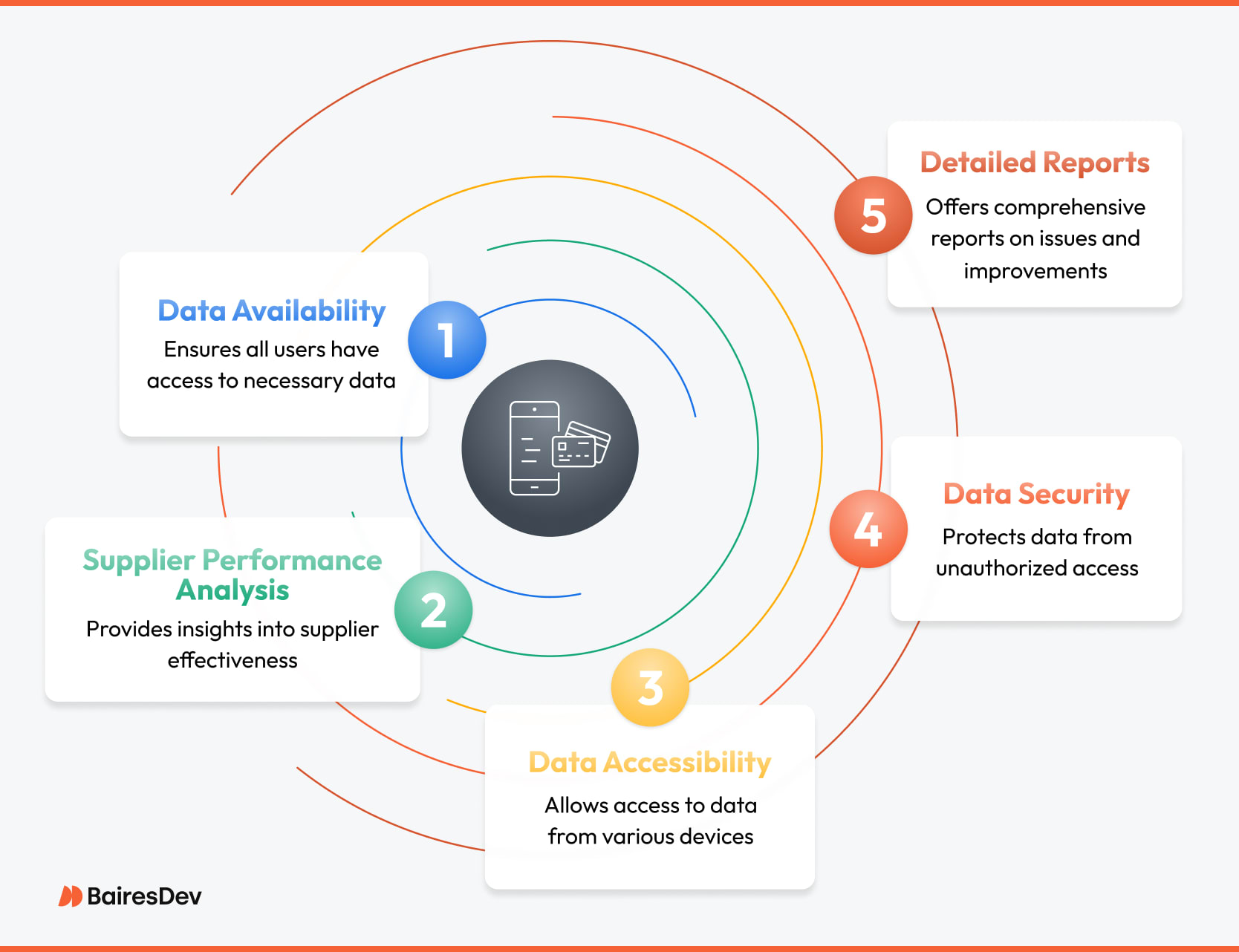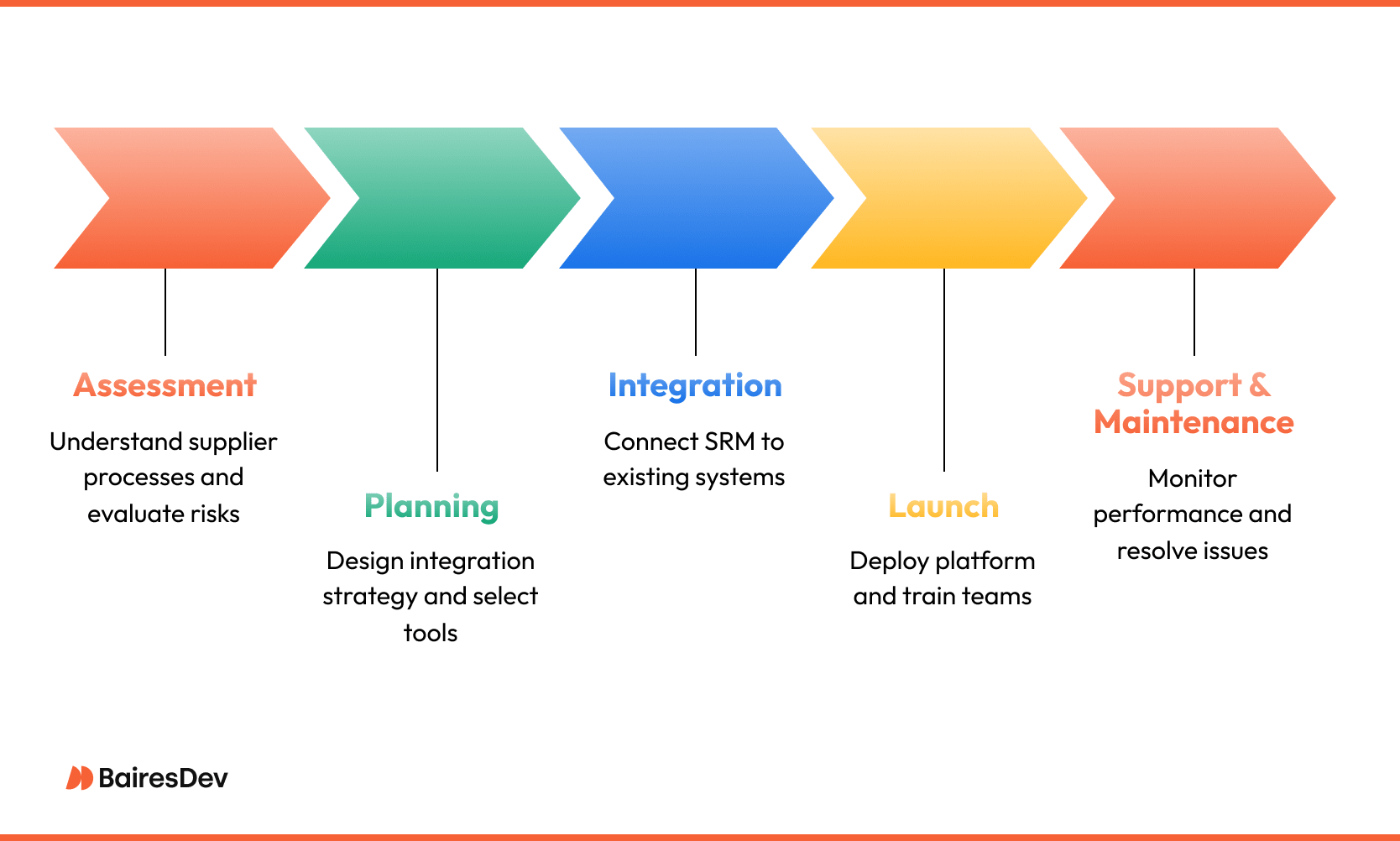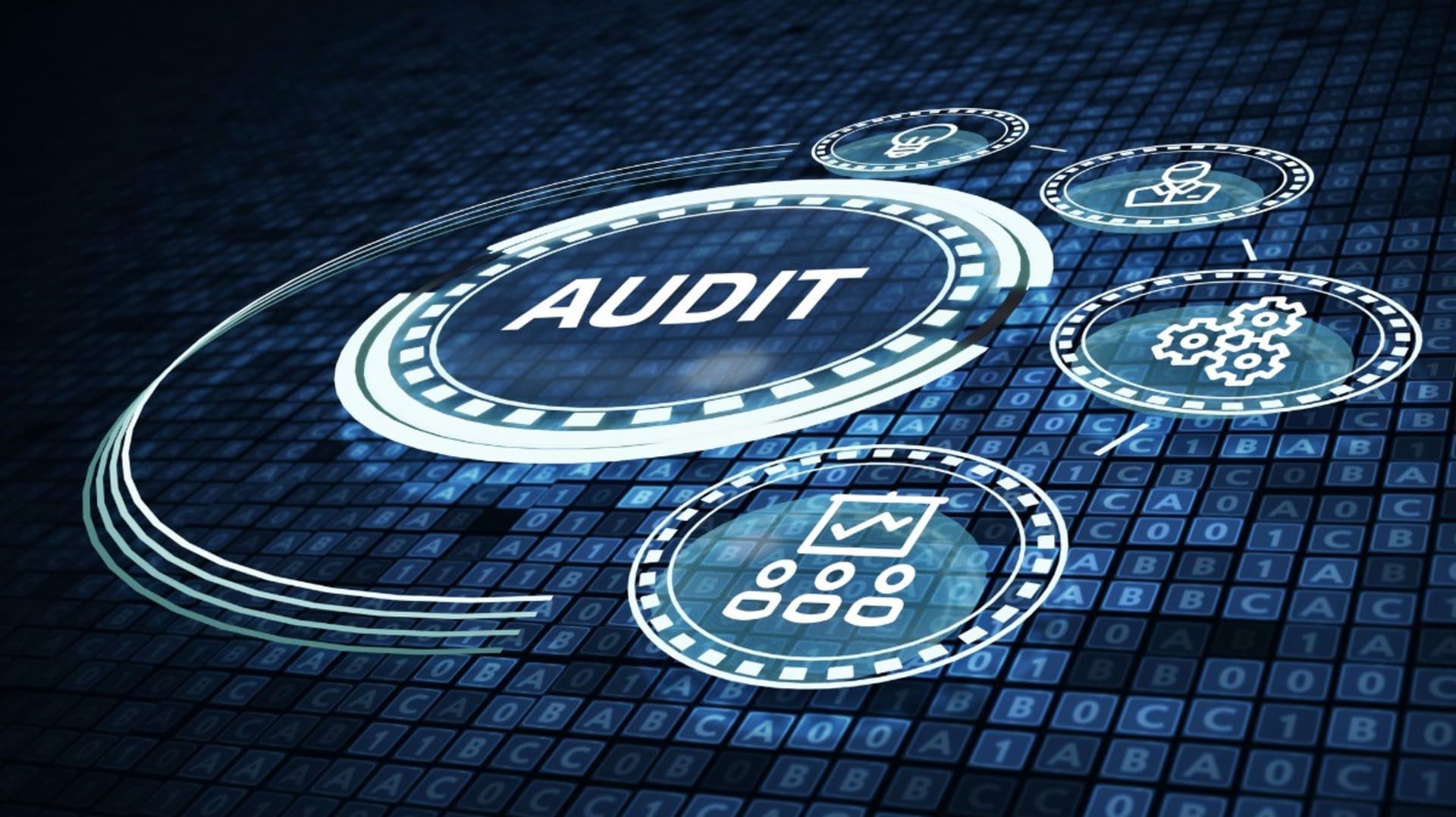In a globalized economy, companies across all industries rely a multitude of other businesses to develop and deliver their products and services. Many businesses partner with multiple vendors to ensure the supply of goods, services, and materials essential to their operations.
These interdependent relationships create a network of connected companies that depend on each other to operate. However, while these intricate supply networks enable efficiency and scale, they also introduce challenges in oversight, risk management, and supplier relationships.
What Is Supplier Relationship Management (SRM) Software?
To address these complexities, many organizations turn to supplier management software, also known as supplier relationship management software. SRM providers help companies deal with the challenges of working with multiple vendors.
SRM software provides a centralized platform for managing all the information needed to manage supplier relationships: current relationship with the brand, contact information, services and products, associated risks, and contractual history. By using SRM tools, professionals gain visibility into other supplier ecosystem, allowing them to monitor their supply chain, keep track of supplier engagements, and ensure compliance.
Why Is SRM Important?
The ability to manage and interpret relevant data has become a must for companies of all sizes across all industries. Data helps companies understand market dynamics, identify risks, uncover business opportunities, and enhance productivity.
The wide variety of data types and the sheer volume of data has forced businesses to look for specialized solutions that allow for better management of each kind of data. This is where procurement efficiency comes into play, as it enhances supplier collaboration, improves monitoring, and streamlines processes.
In that context, SRM platforms have become invaluable for anyone dealing with supplier relationship management. SRM software allows companies to consolidate data related to all their suppliers in a central hub. The SRM platform thus guarantees data availability while also providing enough features to analyze information that can lead to improved relationships with providers. Additionally, strategic sourcing is a crucial component that allows businesses to focus on high-value activities, improving relationships and streamlining procurement processes.

Benefits of using SRM platforms include:
- Heightened data availability for all SRM users
- In-depth supplier performance analysis
- Extended data accessibility across devices
- Increased data security
- Detailed reports about issues and improvement opportunities
These benefits highlight why SRM platforms are important in today’s business environment: They provide powerful features to deal with suppliers, a must for any company.
Leading Supplier Relationship Management Solutions
Given the importance of supplier relationship management, it’s not surprising that leading software vendors offer feature-packed SRM solutions tools and platforms. Some of the biggest providers of SRM tools include:
- Oracle
- SAP
- Microsoft
- IBM
- Avercast
- NeoGrid
All these companies provide cutting-edge SRM solutions that are widely adopted across industries due to their scalability, functionality, and integration capabilities. Evaluating these off-the-shelf SRM solutions is a logical first step for any organisation seeking to improve supplier management.
When selecting an SRM provider, consider several key factors such as: the complexity of your supply chain, the number of users, the level of detail and customization you need, and integration requirements.
Choosing Between Off-the-Shelf and Custom SRM Solutions
While commercial SRM solutions tend to be highly effective, they aren’t suitable for every business. Businesses with extremely complex supply chains, industry-specific workflows, and unique integration needs often find that off-the-shelf supplier management software lacks flexibility.
Industries such as manufacturing, pharmaceuticals, and large-scale retail often require a high degree of customization due to their intricate supplier ecosystems. For example, manufacturers may need real-time coordination with multiple suppliers to ensure just-in-time production. Pharmaceutical companies face constantly evolving compliance challenges across different regions.
What happens when business requirements exceed the standard configurations offered by commercially available solutions? Companies start investing in custom SRM development.
By partnering with specialized software development firms, organizations can design SRM solutions tailored to their their needs. Ideally, these custom SRMs should offer seamless integration with existing enterprise systems and specific features that give them a competitive edge over existing solutions.
Cost is another consideration. SRM providers typically offer subscription-based pricing resuling in a lower upfront investment. However, long-term costs can be substantial. Custom SRM development involves a higher initial investment, but makes up for it with a better return on investment down the line.
What Are the Key Features of Supplier Relationship Management Software?
Though each supplier management solution is different, all share a few common features, such as:
- Supplier data management: An SRM can deal with everything related to document storage, supplier registration, supplier data synchronization, and data tracking.
- Supplier risk management: SRM often integrates features for real-time risk mitigation and monitoring, automatic alerts, and regulatory compliance checks.
- Procurement management: These platforms track purchase and execution orders, and automate the matching process. They also help streamline procurement processes and improve supplier performance by facilitating collaboration across the supply chain.
- Supplier selection: SRM applications have built-in options to assess potential suppliers, approve sourcing events, and generate comparisons between different suppliers.
- Supplier performance management: SRM platforms feature comprehensive dashboards to track supplier performance and activity based on different metrics. This helps strengthen supplier relationships and drive procurement efficiency.
- Supplier contract management: These tools also allow you to track the status of all contracts with suppliers, set up automatic contract renewals based on different criteria, and create contract templates.
- Supplier portal: SRMs provide an overview of your supply chain through which you’ll see all your supplier data, shared files, and feedback.
- Cost management: SRM platforms provide companies with multiple tools to control supply chain expenses, allowing you to define cost limits while also giving you options to analyze how much you spend in real time.
Supplier Collaboration and Communication
Supplier collaboration and communication are crucial components of effective supplier relationship management (SRM). By fostering open and transparent communication channels, businesses can build trust with their suppliers, drive innovation, and improve overall supply chain performance. Supplier collaboration involves working closely with suppliers to achieve common goals, share knowledge, and drive mutual benefits. This can be achieved through regular meetings, joint planning, and collaborative problem-solving.
Effective communication is also essential for successful supplier collaboration. This includes clear and timely communication of expectations, requirements, and feedback. Businesses can leverage technology, such as supplier portals and collaboration platforms, to facilitate communication and streamline interactions with suppliers.
By prioritizing collaboration and communication, businesses can:
- Improve supplier relationships and trust
- Drive innovation and joint problem-solving
- Enhance supply chain visibility and transparency
- Reduce misunderstandings and errors
- Improve overall supply chain performance
SRM Market Landscape and Trends
The supplier relationship management (SRM) market is rapidly evolving, driven by advances in technology, changing business needs, and increasing complexity in global supply chains. Here are some of the key trends shaping the SRM market in 2025:
- Digitalization: The adoption of digital technologies, such as cloud-based SRM platforms, artificial intelligence (AI), and the Internet of Things (IoT), is transforming the way businesses manage supplier information.
- Supplier collaboration: Businesses are recognizing the importance of collaborative relationships with suppliers, driving innovation, and improving supply chain performance.
- Risk management: The increasing complexity of global supply chains has highlighted the need for effective risk management strategies, including supplier risk assessment and mitigation.
- Sustainability: Businesses are prioritizing sustainability and social responsibility in their supplier relationships, driving the adoption of environmentally friendly and socially responsible practices.
- Analytics and insights: The use of data analytics and insights is becoming increasingly important in SRM, enabling businesses to make data-driven decisions and optimize their supplier relationships.
Custom SRM Development and Implementation
Whether you’re looking to integrate an off-the-shelf SRM or build a custom solution, our SRM specialists can help you define the project scope and implement it. Our engineers will help you identify improvement opportunities while contributing to delineating your SRM strategy.

Our thorough SRM implementation process focuses on robust technologies and platforms that enable organizations to develop comprehensive supplier relationship solutions.
Assessment
We discuss your supplier management processes to better understand your goals and requirements. Here, we start devising an integration plan. Third-party risk management is a crucial part of the assessment.
Planning
Using what we learned in the assessment phase, we plan the integration considering multiple factors, including the type of features you need, the off-the-shelf solution you choose to use (if any), and the intended outcomes. We aim to ensure that supplier onboarding is automated, relevant supplier data is centralized, and that your in-house team is ready for implementation.
Integration
We start working on the integration with your digital infrastructure. Here, we’ll carefully implement the SRM, connecting it to various data sources, CRM, and other tools that expand the platform’s offerings.
Launch
Once we’ve gone through the implementation phase and its corresponding testing steps, we launch the platform. We’ll help you train your staff, outline the benefits of the new solution, and provide comprehensive documentation.
Support and maintenance
Using an SRM platform can create issues in your infrastructure. To prevent them from snowballing, we’ll help you monitor and maintain the platform so you can take advantage of all its features.
Supplier Onboarding
Supplier onboarding is a critical process in supplier relationship management, involving the integration of new suppliers into the SRM. Effective onboarding is essential for ensuring that suppliers meet requirements, reducing the risk of non-compliance, and improving overall supply chain performance.
Here are some key steps involved in supplier onboarding:
- Supplier selection: Identify and select potential suppliers based on internal requirements and criteria.
- Supplier registration: Register suppliers in the business’s SRM system, capturing essential supplier information such as contact details, certifications, and contracts.
- Supplier qualification: Assess suppliers’ capabilities, capacity, and compliance with business requirements.
- Onboarding: Provide suppliers with necessary information, training, and support to ensure a smooth transition into the business’s supply chain.
- Ongoing monitoring: Continuously monitor supplier performance, compliance, and risk, making adjustments as necessary.
By prioritizing effective supplier onboarding, businesses ensure compliance, smooth supply chain operations, and build trust with suppliers.
Start Your SRM Project
If your organization collaborates with multiple vendors and suppliers, and your team is struggling to keep up, it’s time to consider SRM solutions.
Our experts can help you avoid costly mistakes and subpar performance. Our SRM Eengineering Team is ready to help with all aspects of the project and take your supply chain management to the next level.






